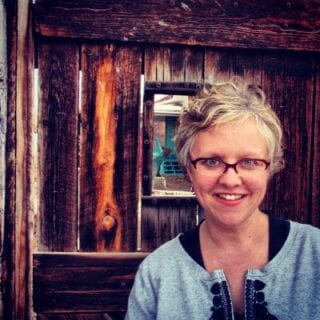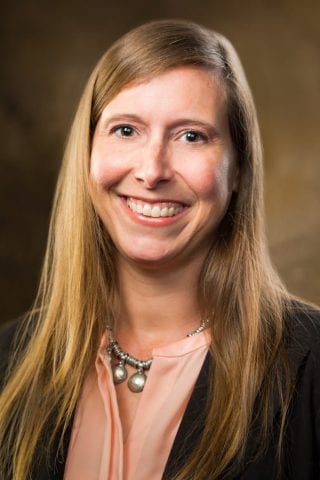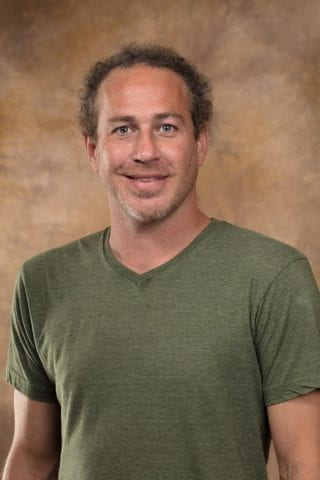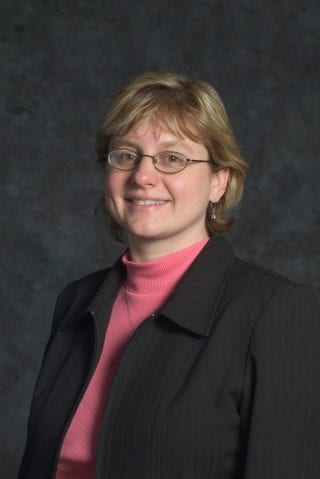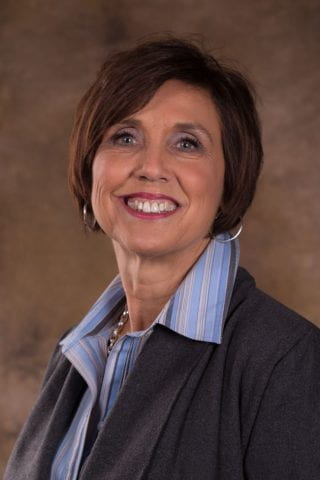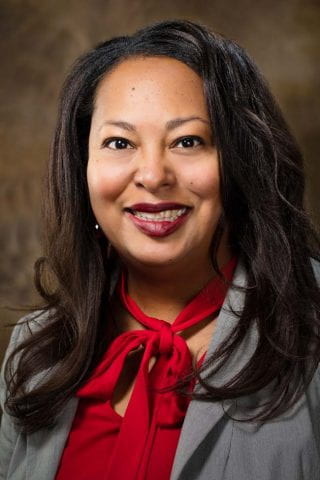Explore Our Online Open House and Top Tips for Student Success
Did you know? No matter what a University of Arkansas student’s major will be, no matter what they are interested in studying, the majority of their core courses will come from the Fulbright College of Arts and Sciences.
“And we are so excited for all of the new students about to join our Fulbright College family this fall!” said Todd Shields, dean of Fulbright College.
Consisting of three schools, 16 academic departments and more than 40 academic centers, the college offers degrees in the fine arts, humanities, natural sciences and social sciences. And it is here that these new students will begin forging their path into the future.
“At Fulbright College, you are unlikely to find a more supportive, talented, intelligent and diverse group of people ready to help our students succeed,” Shields said. “To kick things off, we want to Welcome You to Fulbright College with our online open house – its site has some great advice about navigating your first semester and beyond, and lots of information about our departments, degrees, majors and minors!”
Shields said the site also has video messages from areas across the college, listings of campus and college resources, and information about A-Week.
“We hope this gives you a unique way to start exploring the college, and to discover possibilities based on your personal interests, abilities, desires and purpose to build the skills that will help you succeed during your higher education journey,” Shields said.
Additionally, Shields said his team gathered some of the college’s leading experts on student success and asked them to share their best tips.
“Whether you’re a new or returning student, the parent of a student, a faculty or staff member, an alumnus or another part of our Fulbright College family, check these tips out and be sure to share this insiders’ scoop,” Shields said.
Question:
What is something all students should do to set themselves up for success this academic year?
Answer:
Establish a routine for attending class and studying that is separable from relax-time. A routine will help you concentrate and be more productive, and also let you be able to “step away” when it’s time to relax, which will clear your mind at the end of the day and help you sleep better.
Answer:
Be engaged – particularly in a remote delivery setting. Remove distractions before joining class and be an active participant. Learn your instructor and class expectations, understand your syllabus, define your goals and what it will take to achieve them.
Answer:
Intentionally wander. You’ll be exposed to a lot of amazing opportunities. When you take advantage of them, reflect on what excited/inspired/spoke to you in that opportunity. Then set out to intentionally do more of those kinds of things.
Answer:
Be understanding – of yourself, your instructors, and the campus community. We truly are all in this together as we all adapt to the various learning environments. Don’t be too hard on yourself, your professors or others. Kindness is key.
Answer:
This year is going to be unlike any other. Realize that there will be challenges, but also unanticipated opportunities. So, be flexible. There isn’t a “one size fits all” approach to teaching or learning, so let go of those types of expectations.
Answer:
Don’t ever be afraid to ask! Ask questions about course material, ask for help with various issues you may find yourself facing. There are resources and answers to nearly any question you may have.
Answer:
Even if it’s completely online, go to class. It is important to get to know your professors and peers. No matter where or how your classes “convene,” give it your all. Be present and reach out if you are having trouble with the material or if you’re facing an issue with technology.
If you have a day when all of your classes are meeting via virtual platforms, treat it as a regular day. Set up a workspace that is quiet, conducive to study, well-lit, and where you can be surrounded by your books and notes. If at all possible, your workspace should not be your bed.
Question:
What is something most people wouldn’t have considered, but is paramount to student success?
Answer:
Take care of yourself and your health, both mental and physical. Eat right. Exercise. Talk to someone when you are feeling stressed out, lonely, or anxious. The Wellness Center describes 8 Dimensions of Wellness. It is important to seek balance in all eight dimensions.
Answer:
Many students struggle with time management, especially now during the pandemic. Try a modified Pomodoro Technique, where you set a timer for 25 focused minutes of studying with no phone, friends, or other distractions. When the alarm goes off, take a 5-minute break allowing for those distractions. Repeat as needed.
Answer:
It is important to see each student, faculty, staff and campus community member for who they truly are and to respect them, learn about them and if at all possible, appreciate them. We are all different, and if we learn to work together better, we can accomplish a lot more.
Answer:
Get enough sleep. There’s a ton of research indicating the impact sleep has on brain functionality. It helps us recharge, think clearer, and process learning better. Establish a regular sleep schedule and make it a priority. You’ll be glad you did!
Answer:
Learn to balance your social life with academia. College SHOULD be fun but finding that right balance takes self-exploration and time management to learn what works best for you.
Answer:
NEVER ignore U of A emails. That’s the university’s main source for communicating with students to keep them informed about important dates or campus information!
Answer:
Use the Writing Center. Its tutors help with punctuation, word-choice, and grammar, but they also help student writers to resolve issues with organization and promote effective argumentation. The Writing Center is there for everyone, whether you are composing an essay, creating a work of fiction, or drafting a dissertation.
Question:
What do you most wish students knew to help them succeed?
Answer:
Use a planner from day one. Put all assignments in the planner and update it when necessary. Then plan ahead for how to accomplish everything when multiple assignments are due at the same time.
Answer:
Try to be fully present when you are learning. If you spend focused time while you are learning, not only will you be more successful, it will also take less time.
Answer:
Utilize resources that are available to you before you are in dire need of help – the writing center, tutoring lab, faculty office hours, mentors, student success center, the dean’s office, etc.
Answer:
Get to know and understand your degree requirements. Faculty and professional advisors are here to help guide you to graduation, but it is very important that you know your requirements. The Catalog of Studies is a great place to start.
Answer:
Start where you are. Many students feel they are somehow behind on planning for the future, but everyone is in their own perfect place to begin. Each day is a new opportunity to move forward. Break up your big goals into smaller manageable action steps to make things happen.
Answer:
Make an appointment with your academic advisor before dropping or failing a class. Academic advisors have appointment availability and are ready to assist students with more than just class selection. They can discuss options for completing the class successfully as well as provide possible alternatives you most likely did not know were available.
Answer:
Whether you are writing essays, reading responses, book reviews, lab reports, or research papers, nothing is more useful than an outline. A solid outline begins with a clear articulation of your argument; requires you to define your key points; helps you see where supporting evidence and key examples are needed; and prompts you to figure out where to describe your methodology, furnish context, or insert visuals. A truly great outline serves as the scaffolding for a thoughtfully argued, provocative, and compelling paper.
Question:
What resources on campus are underutilized “hidden treasures” that would really help students if they knew about them?
Answer:
Handshake! This is the place to find internships and jobs that are posted by employers for U of A students. And this is where you can go to learn about all of the professional networking opportunities on campus. And you’ll get an email each week with career tips – skim them!
Answer:
Students receiving scholarships should be very aware of what their scholarship requirements are. Losing a scholarship because you did not understand the requirements can be very costly both financially and emotionally and have a huge impact on a student’s success.
Answer:
Use CLASS+! Students who utilize resources such as tutoring, the writing lab, and meeting with academic coaches are more successful. These resources are not just for students who are struggling, they reinforce learning and help students gain a better mastery of the information.
Answer:
Check out all that University Recreation has to offer. Students can even borrow canoes, kayaks, bikes, etc. for weekend stress relief.
Answer:
Get involved in campus or community volunteer opportunities, which create a sense of community and belonging. We have a Center for Community Engagement in Student Affairs that can connect you to all kinds of volunteer activities.
Answer:
Learn about the college’s Diversity and Inclusion office. It’s here to be of service, connect you with resources, and to support our faculty, staff and students in so many ways.
Tip contributors include:


